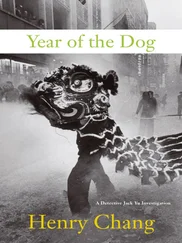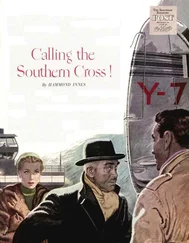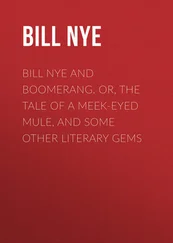Folks would come from miles around — as far away as Prichard and Mobile and Tillmans Corner. The line would stretch out the door and Eli would watch them, their slack and tired faces, the nervous hands. Eli listened as the root man dispensed his advice: mashed-up snake root and grooveburr in a sachet under your bed. A strip of yellow cloth and powdered anise seed inside a flannel pouch. There were tricks for money and tricks for love and tricks to turn the Devil from your door. There were mojo hands and evil eyes and black cat bones. And all around was the invisible world, Eli realized, each of us caught in its strange currents. If he shut his eyes, he could almost hear it — the thump of blood. The driving noise. The deep and ancient undertows.
The first trick he ever laid, Eli made a wish and rubbed a piece of lodestone to a purple kerchief. He buried the rock underneath a linden tree and burned the kerchief, setting the ashes into the wind. In time the universe would answer. When he was thirteen, a man came to his grandma’s house. He was tall and dark and slim with a mouth full of gold and he told the boy that he was his father. With him, he’d brought an old pine-top upright piano. The man said he had a job selling them all over the country. When Eli’s grandma found that man inside her house, she ran him off with a meat cleaver. She chased him clear out of town before he could recover his piano.
For hours every night Eli would sit at the box, studying the keys. He’d pry open the top panel and watch the wooden hammers rise and fall across the long raking cables. He taught himself, and in time the piano became almost second nature. He liked the way his arms spread its length, the way the sound gave underneath his fingers. It became a conduit of his will. Anger and joy and sadness swooping out of his soul and into the air.
And yet when he sat himself at the bench, when the fall board lifted away to reveal the peninsula of glowing keys, he could not say he was entirely himself. The hands were not his hands. They moved without his moving them, tensing into claws, doing their jitter jump. The chords rose like a heat above the keys and the thought occurred to him that maybe it was not his will that drove his hands, that spanned his arms, that struck and stroked and stomped his feet against the ground.

ELI LEFT HOME WITH HIS mojo bag, a deck of cards, and a head full of humming. He spent years on the chitlin circuit — playing at the Queen City Hotel, Po’ Monkey’s Lounge, Doke’s Barbershop, and in the tiny jukes up and down Chrisman Street. He earned himself a name as a demon on an upright. For hours he’d play, his face stern and his clothes sweat-heavy. Folks would jam into the tiny halls, their bodies full of heat, and Eli would shut his eyes and feel their swell in the back of his mouth, their beating feet in his throat.
Rumor had spread about the devil bag he kept at his waist, and after a set, there’d always be some desperate woman waiting for him outside. She’d tell him her troubles, and he’d listen — his face a blank, lost in the hiss of the gas lamps.
When she finished speaking, he’d look her square in the eye.
You got to be sure, he’d say, his hand laying warm across the back of hers. ’Cause once it gets doing, can’t get undone.
Then he’d take her money and walk her back to someplace dark and quiet where they would not be disturbed.

IN THE DAYS AFTER THE flood, it was so calm you could see clear through the water like it was a sheet of glass — torn-up roofs, stovepipes, drowned livestock made stiff and waxen. The D.C. men had come down on special order and they went around in their standard-issue tan, speaking in clean soft voices, sketching their plans on rolls of yellow paper. At night they went into the refugee camps, their lanterns flashing and disappearing through the weeds. They went to the coloreds first, rousting them from their beds with promises of work and food and a chance to help their country. And then there was Eli who was already up, who never slept much to begin with — Eli with his mouth on the mouth of a bottle of corn whiskey. He was by the fire, shooting craps — the dice heavy with mercury and firing sevens.
He didn’t see the D.C. men, didn’t see them come up till one of them put a hand on his shoulder.
You serving your country now.
In the morning, they lined him up with the others and gave them each a ration ticket. They fed them on stores of stiff bread and a thin soup before driving them up-country to the levee camp. It was a wide and grassless clearing set along the water break, where rows of pup tents crowded into one another. The latrines were a network of shallow trenches running through the camp and out into the water. The mosquitoes raged thick and black, flitting on their eyes and skin and shit.
They gathered the men to the water’s edge and one of the D.C. men stood himself up on a supply truck and sketched out what needed doing: a berm, ten feet high, six feet across, running two miles downriver. The work would be hard and long, but their work would live on in the state for years to come, he said.
Then someone asked, How long we got to live here?
And the man said, Long as it takes.
Then they were given shovels.

THE MAN IN CHARGE WAS a former overseer named Homer Teague. He wasn’t from D.C., but he’d run a plantation somewhere roundabout Indianola, and the D.C. men had figured that running coloreds is running coloreds. Teague was a fierce drinker. When he was angry, his face would turn wine red, and he’d uncoil that long bullwhip he kept at his belt and snap it in the air. If you didn’t shovel or haul fast enough, he’d pull you out of your line, and stretch you out under a tree and tear you through with a piece of splintered hickory.
He lived out with his sister, Emaline, in a plantation house outside of town, a creaking place where the walls looked like bone and the stink of sulfur came up through the mud. It was always on his boots, kissing yolky daggers into the earth.
Maybe it was the difference in their ages, but where her brother was mean and quick to anger, Emaline was gentle and easily moved to emotion. She was sixteen years old, a bird of a child. Some days, she’d come down to the camp done up in her gingham homespun, toting a basket of apples for the men.
Eli would greet her as she came down the line. Unlike the others, Eli wasn’t afraid of smiling at white women, big and toothy, full of nothing behind it. He’d bow, tipping some invisible hat, before righting himself and accepting her apple.
But the biggest, reddest apples she’d save for her brother, who looked forward to her visits. Teague would crunch them between his teeth, gold-colored juices soaking up in his red beard. He’d lick the sticky off his fingers and Emaline would dab her kerchief on his lips and his hands, shaking her head, saying, Oh, Homer.
For months, Eli worked out in the levee camp under Teague, digging ditches, driving mules, and hauling cement. Breakfast bell comes at five, and if you ain’t got your card, you ain’t eating — then it’s down to the riverside till the quit bell rings. In those long hours the men would wait on those bells, hearing them when there wasn’t nothing to hear at all — just a magpie screaming or some faraway train going, tearing through the world like it was made of butcher paper.
The work was hard and grueling but on Saturdays, they’d clear out the equipment shed and him and a few of the boys would get a special dispensation into town. They’d come back with barrels of white whiskey and a hog to slaughter and roast over the fire pit. Once they stole a piano — took four goddamn men to lift — and Eli would drink that white whiskey and beat those keys and make them forget. The crooked card games, the lying women — one more song, just one more song. They’d rise to their feet, and shut their eyes, feel the wash of sound against them, pulling back like sand on the tide. And those D.C. white boys would just look the other way, down at their rolls of paper, at their pencil sketchings, and let those sorry niggers alone.
Читать дальше













